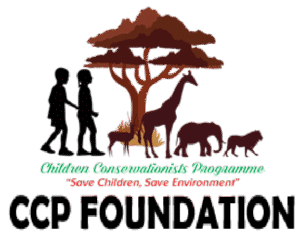Why Conservation?Mentor a child to protect the threatened National Parks and Wildlife Reserves
Save Children Save Environment
We believe in conservation, not only because it protects native plants, birds and animals, but also because it protects us. After all, you simply can’t be healthy in an unhealthy environment. By acting now to protect nature and prevent extinction, we can secure a better future for all.
Millions of hectares of habitat in Uganda and Rwanda today have no permanent protection. Is this the Uganda and Rwanda we want to leave to those that come after us? Without a lasting form of protection, habitat can be degraded or destroyed. Uganda has lost 75% of its national parks and game reserves and nearly 50% of all forests in the last 200 years, and our high rate of species extinctions is the result. When habitats aren’t managed for conservation, invasive weeds and feral animals can cause huge problems. Many of our native species are found nowhere else on earth, so if we lose them, the world loses them forever. But permanent protection means habitats and species can survive and thrive, creating a healthier tomorrow – especially for our children and grandchildren.


Conservation protects our future
We believe that people are the answer to environmental issues. That’s why our approach focuses on People and Conservation.
People
A love of nature comes from our experiences. Getting out and enjoying a National Park teaches you so much about the beauty, dignity, value and importance of the environment. That’s why we’re all about parks for people. We support projects to improve visitor experiences and understanding within National Parks. Learning about what you see outside encourages you to care and to practice more positive environmental behaviors. That’s why we believe in environmental education. With people at the heart of our approach, we support Ugandan and Rwandan conservation.
Conservation
To conserve nature, we must preserve the land and water of our country – the lifeblood of environmental balance. Species—including our own—cannot survive without a healthy habitat. That’s why we add land to Uganda and Rwanda’s National Parks for permanent protection. We’re not about locking nature up. We’re about protecting it in the most secure way possible, while also making it available for you to access and enjoy.
Habitats—ecosystems—simply do not work without species. Geographic isolation for many millions of years led to the evolution of exceptional plants and animals, many of which are unique world over. Our species must be protected for a healthy environment to function.
The human interaction with the landscape tells us the stories of where we have been, who we have been, and how we can choose to go forward. That’s why preserving and sharing the stories of our rich Indigenous heritage is an important part of what we do.
Also, a televised production of celebrities’ experiences in the protected areas is envisioned. This will be screen played in local community gatherings and on local broadcasting services.
Seeing that celebrities are regarded in high esteem by the public, some of whom are role models for young children, CCP will facilitate the creation of spaces where they can meet to share conservation-related talks. This can be achieved by organizing activities such as:
- Conservation-themed sports events targeting the schools and celebrities.
- Tree planting campaigns with celebrities at the forefront
- Visits to protected areas where celebrities are the guides.
CCP will organize an annual fundraising event, “Celebrities in the wild,” to raise funds to support existing conservation-themed projects in the schools and communities. Celebrities will be rallied to be part of the event which will offer real-life hands-on experience in the wild for them.
